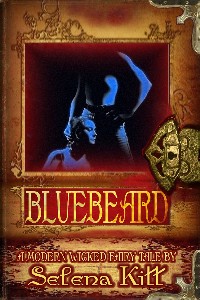Erotic Romance
- Erotic Romance
- Action/Adventure
- African-American
- Alternative (M/M, Gay)
- Anthology
- BDSM
- Chick Lit/Hen Lit
- Contemporary
- Erotica Fiction
- Fairy Tales/Myths
- Fantasy
- Futuristic
- Gothic
- Historical
- Horror/Twisted Tales
- Interracial
- May-December
- Menage a Trois/Quatre
- Multiple Partners
- Older H/h
- Paranormal
- Regency
- Romantic Comedy
- Romantic Suspense
- Rubenesque
- Science Fiction
- Shape-shifter
- Short Stories
- Time Travel
- Vampires/Werewolves
- Western/Cowboys
Mainstream Romance
- Mainstream Romance
- Action/Adventure
- African-American
- Anthology
- Bittersweet/Tragedy
- Chick Lit/Hen Lit
- Contemporary
- Fairy Tales/Myths
- Fantasy
- Futuristic
- Gay/Lesbian
- Gothic
- Historical
- Horror/Twisted Tales
- Inspirational
- Interracial
- Medical
- Paranormal
- Regency
- Romantic Comedy
- Romantic Literature
- Romantic Suspense
- Rubenesque
- Science Fiction
- Shape-shifter
- Short Stories
- Time Travel
- Vampires/Werewolves
- Western/Cowboys
- Women's Fiction
- Young Adult
Non-Fiction
- Art
- Biography & Autobiography
- Business
- Chemistry
- Children Nonfiction
- Computer Technology
- Cooking & Food
- Current Events
- Education
- Entertainment
- Ethics
- Family & Relationships
- Finance
- Folklore
- Gay/Lesbian Nonfiction
- Gender Studies
- General
- Grammar & Language Usage
- Health & Fitness
- History
- Humor
- Language Arts
- Medical
- Military
- Nature
- New Age
- Outdoor Recreation
- Performing Arts
- Pets
- Philosophy
- Political Science
- Professional
- Psychology
- Recovery
- Religion & Spirituality
- Self-Improvement
- Sociology
- Sports & Recreations
- Study Aids & Workbooks
- Text Book
- Travel
- Women's Studies
- Young Adult Nonfiction
A Modern Wicked Fairy Tale: Red
Modern Wicked Fairy Tales 1
excessica publishing
In this modern version of the fairy tale classic, recently orphaned Mae finds herself taking care of her ill grandmother and trying to negotiate the big, wide world of New York. Aside from Griff, a drifter she’s befriended on the long walk to her grandmother’s, she is alone, a frightened country mouse in the big city. Mae can’t believe her good fortune when she meets Lionel Tryst, a charming and charismatic real estate agent, who arranges the miraculous sale of her grandmother’s expensive apartment in the horrible buyer’s market of the Great Depression so they can both move out of the city. But is Mae’s luck too good to be true—or is there a big bad wolf lurking in the shadows?

A Modern Wicked Fairy Tale: Red
Modern Wicked Fairy Tales 1
excessica publishing
Claudia R., Manic Readers Reviews, 4/5 Stars!
"[A] wonderful story with a fairy tale twist. Miss Kitt knows how to weave suspense and excitement, as well as seduction…I can’t wait to read more of Miss Kitt’s wicked fairy tale stories."
More From Modern Wicked Fairy Tales
The breeze as she slid the window closed reminder her that while the air might promise spring, winter was still around the corner, and instead of going out in just her jeans and a cardigan sweater, Mae plucked her coat off the chair and slid her arms into the sleeves. For quite some time, she had nothing but her patchwork rag coat to wear against the elements. It only took once of getting caught in a cold downpour though, dragging into Grandmother’s like a drowned cat after running the last few breathless blocks, before her grandmother had presented her with a solution at their next weekly meeting – a brand new, slick, red umbrella.
Of course, Mae just never remembered the umbrella, but her grandmother had anticipated her granddaughter’s absent-minded nature and accompanied her gift with a matching thick, wool, hooded cape. She wore it with secret pride and a great deal of satisfaction, the hood hiding her face from the crowds on the streets and down in the dungeon of the subway tunnels. And if it hadn’t been for her concealing red hood, she never would have bumped into Griff in the first place—literally.
Smiling at the memory, she buttoned her coat and cinched the red, wool belt before slinging her backpack over her shoulder. She was almost to the door when she remembered the real reason she was taking this trip in the first place, still sitting in a white stapled bag on the table.
“Stupid girl,” she murmured, doubling back to pack the crinkly white bag into her backpack. There was just enough room left on top. The zipper stuck a little and she yanked it closed, glancing at the clock, anxious to be gone now. There was no spoken time between them, no spoken arrangement, but the assumption was noon. He was always there at noon, looking surprised to see her every single time, and yet she knew he really wasn’t.
He couldn’t be. Could he?
People Also Bought:
Need Help?
Siren-BookStrand Portal | Privacy Notice | Disclaimer | Content Restrictions




















